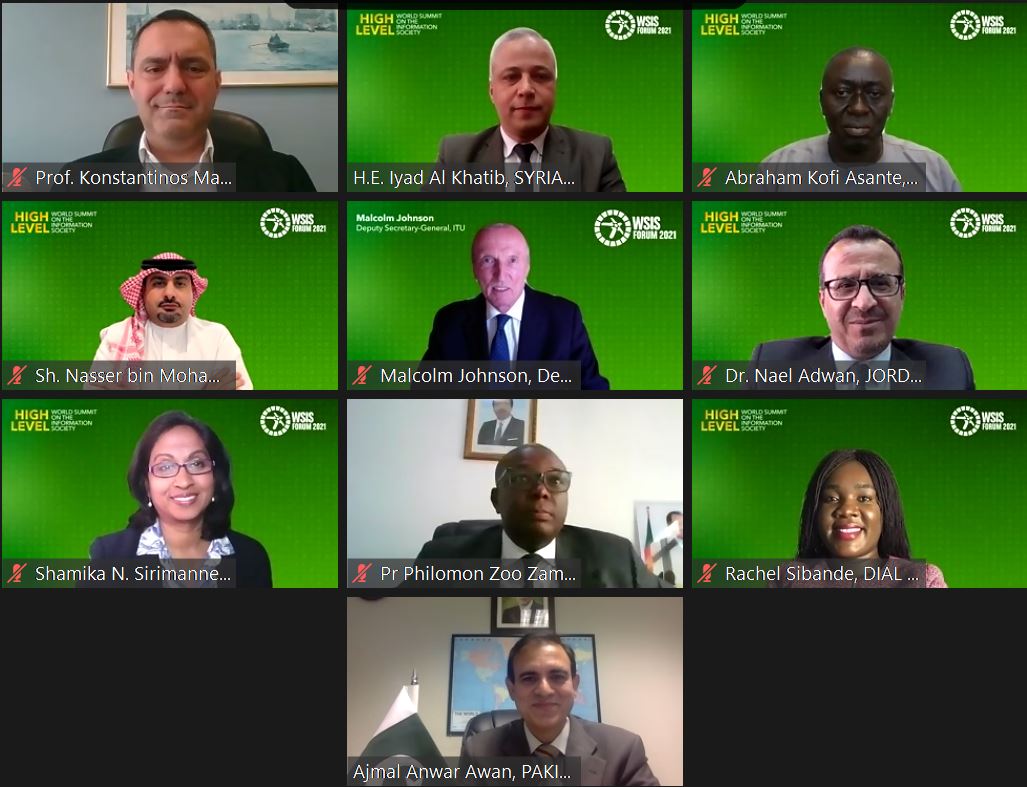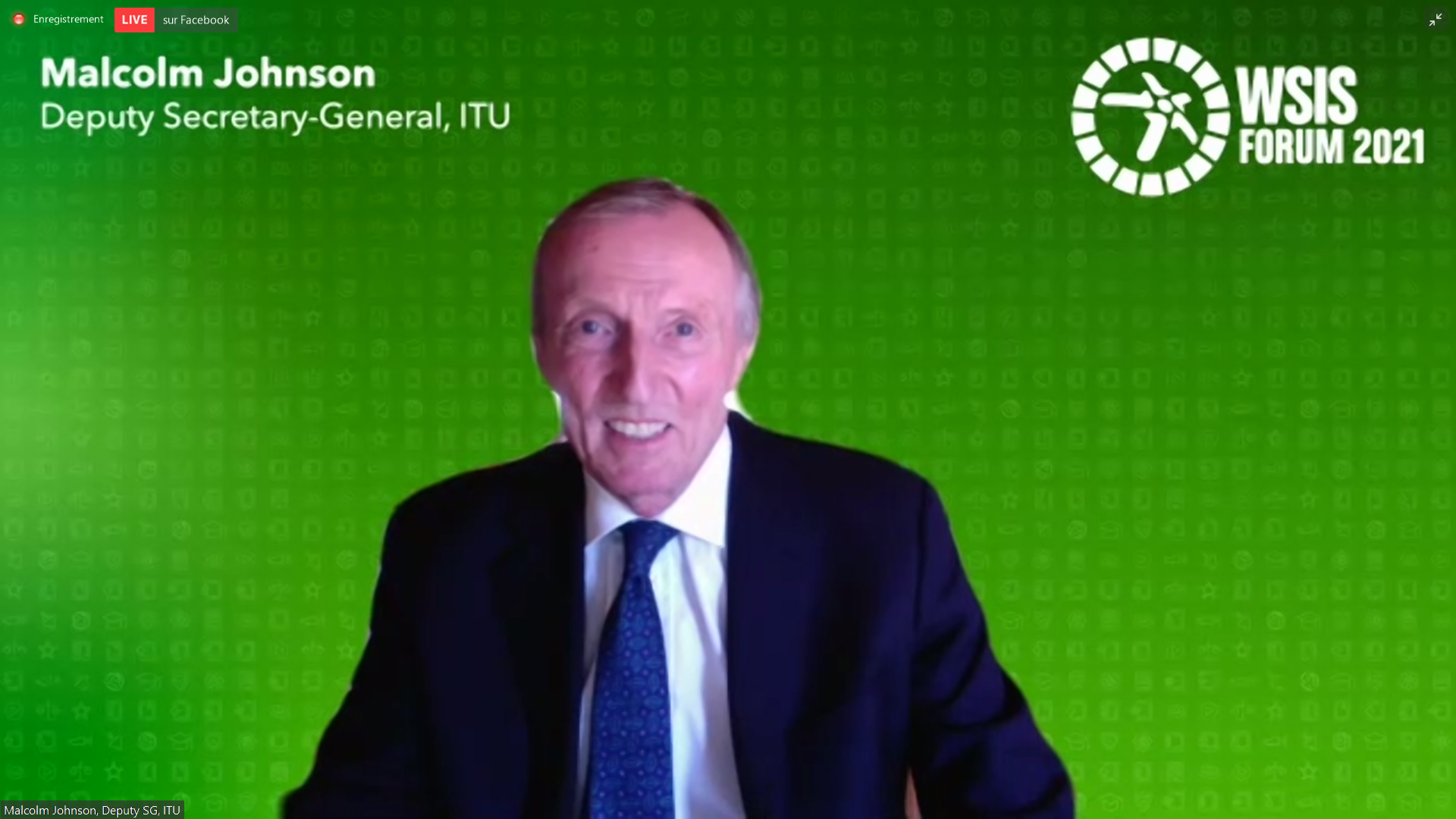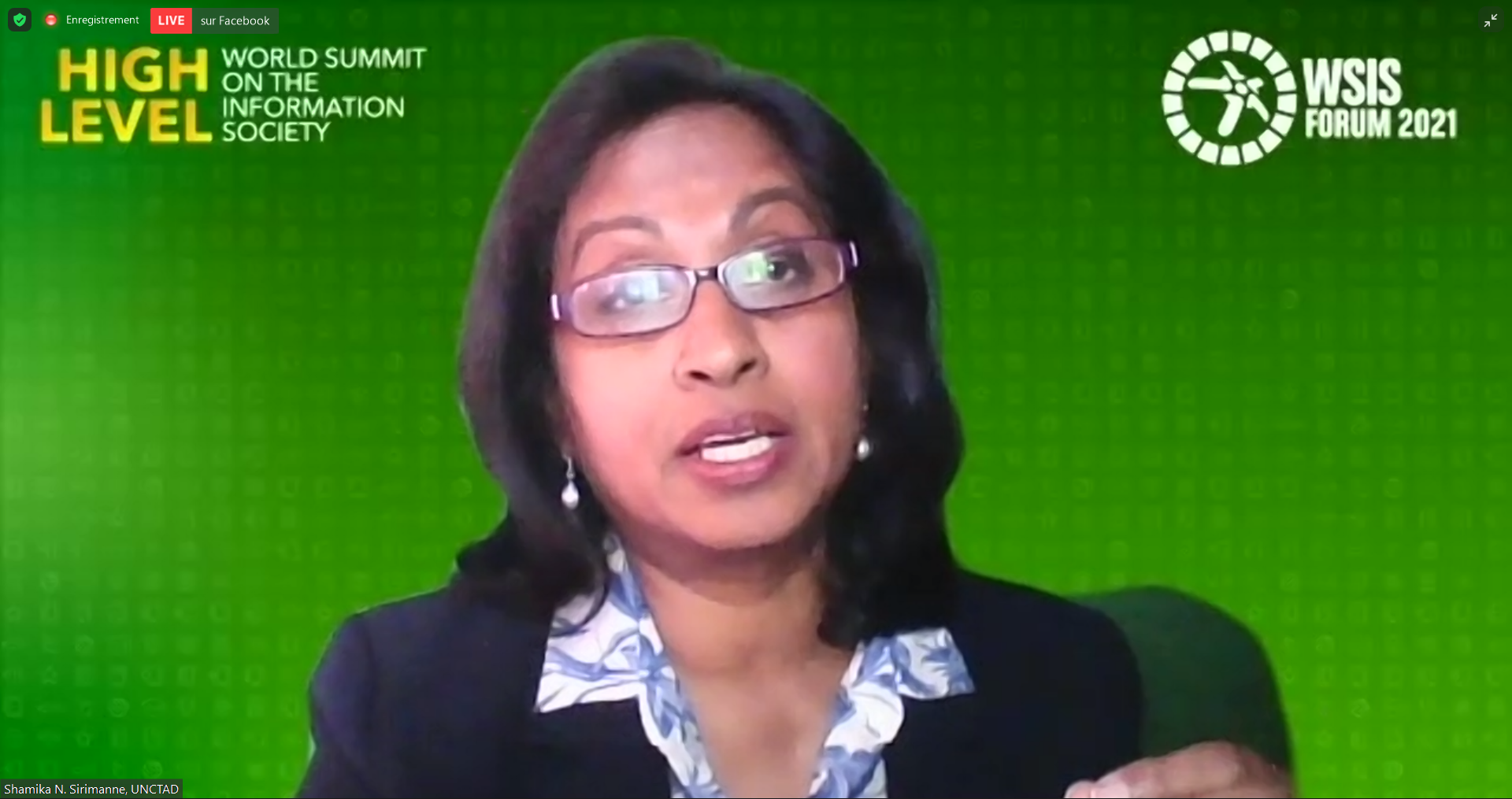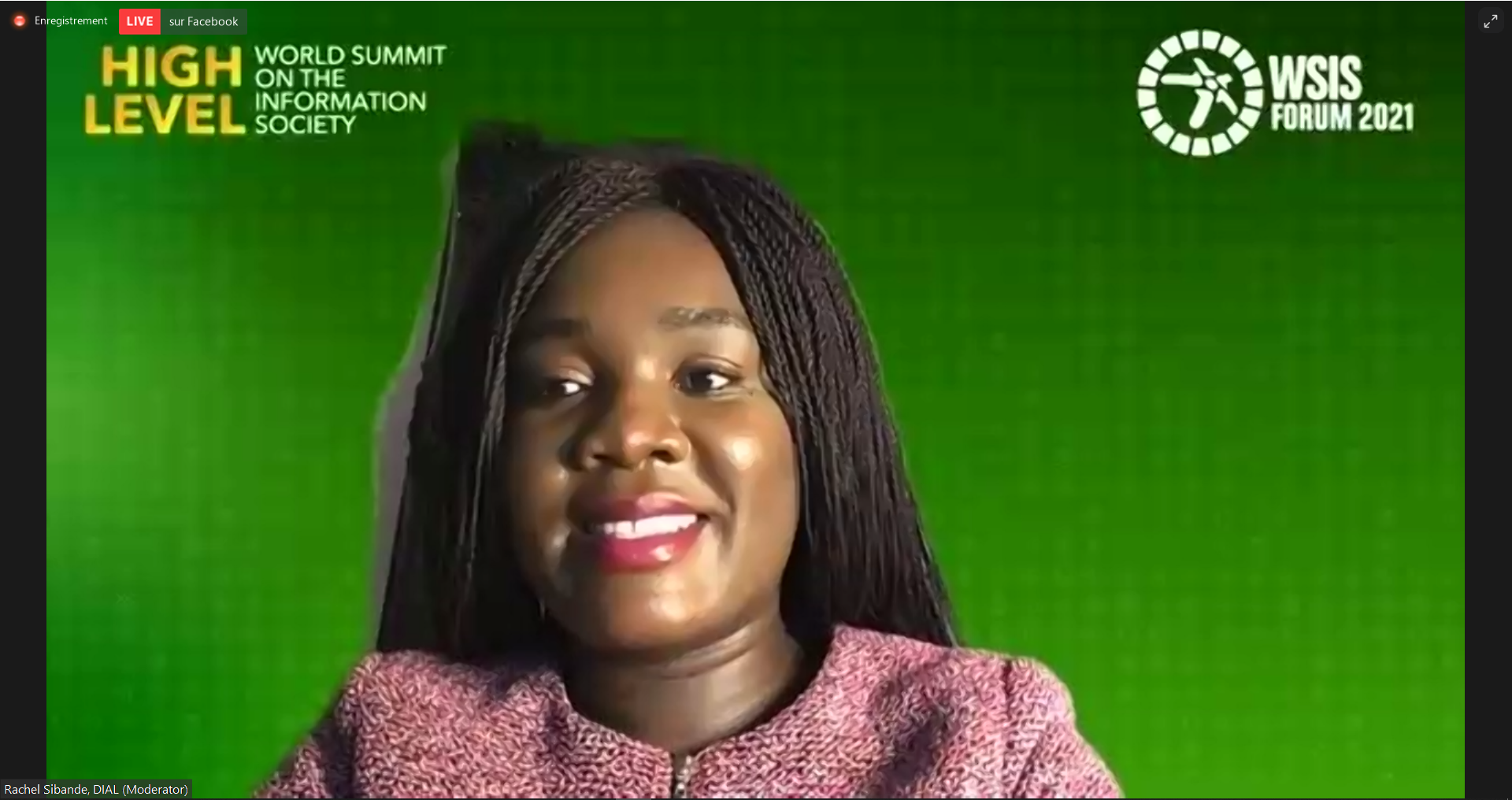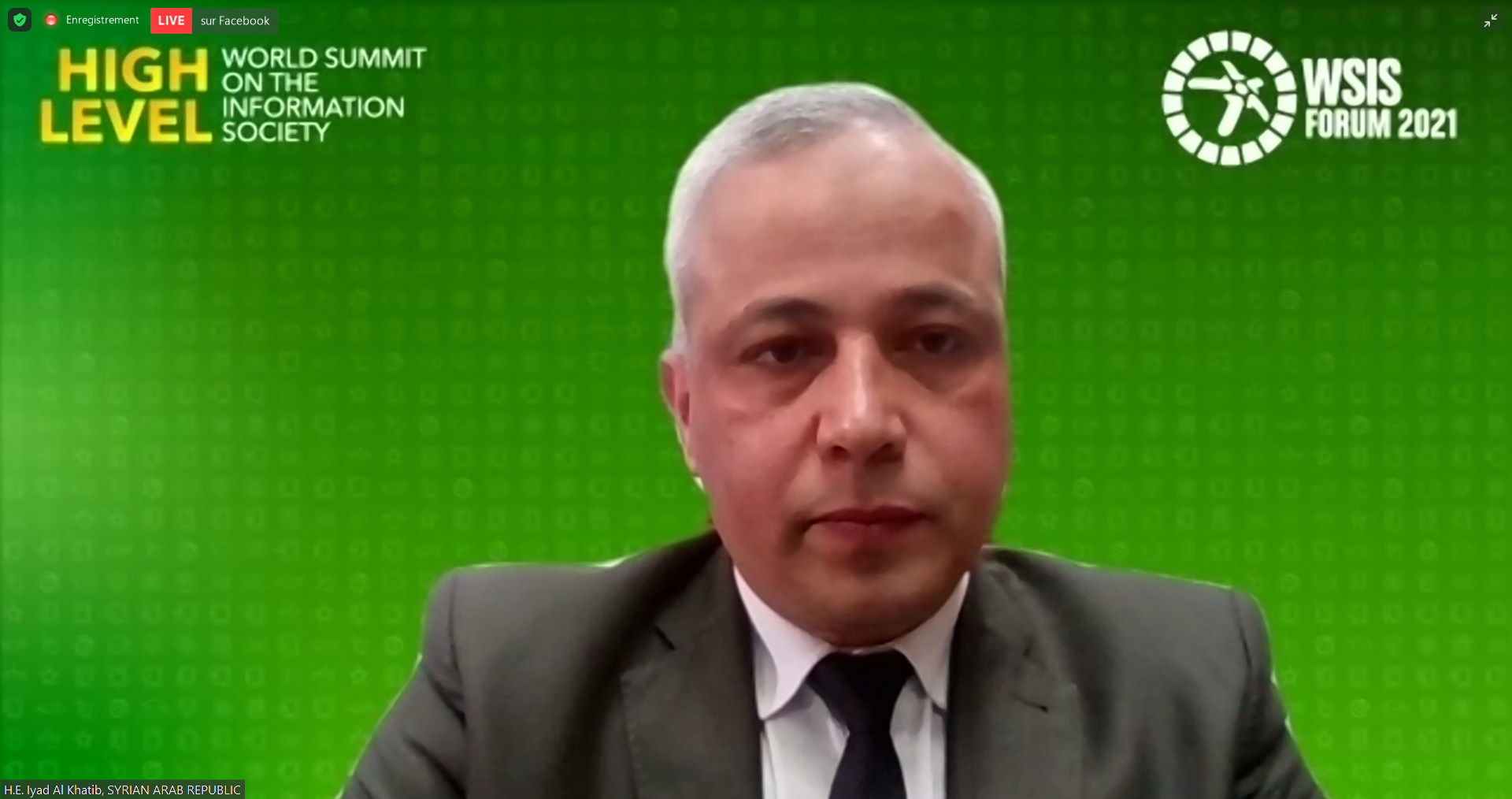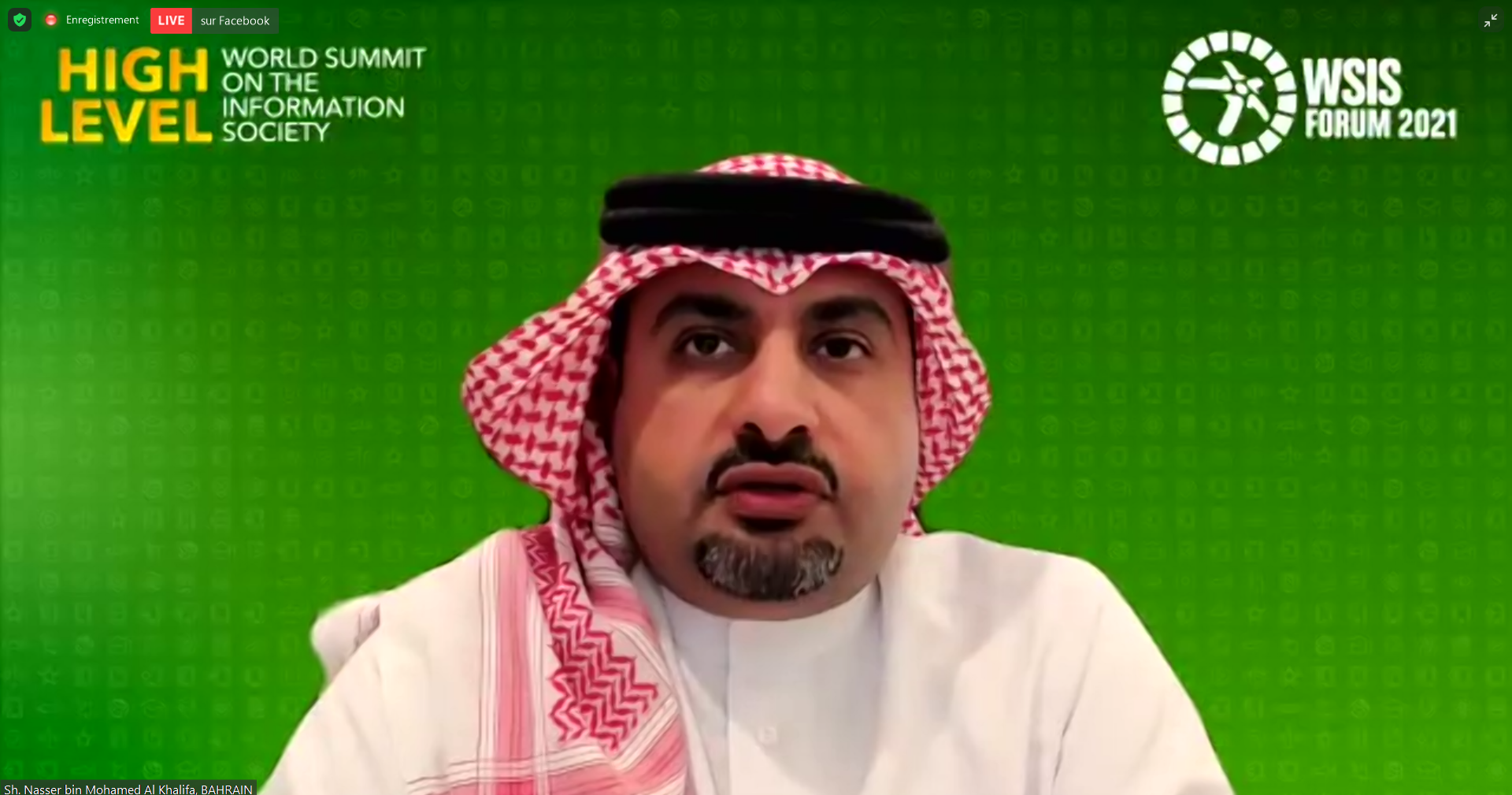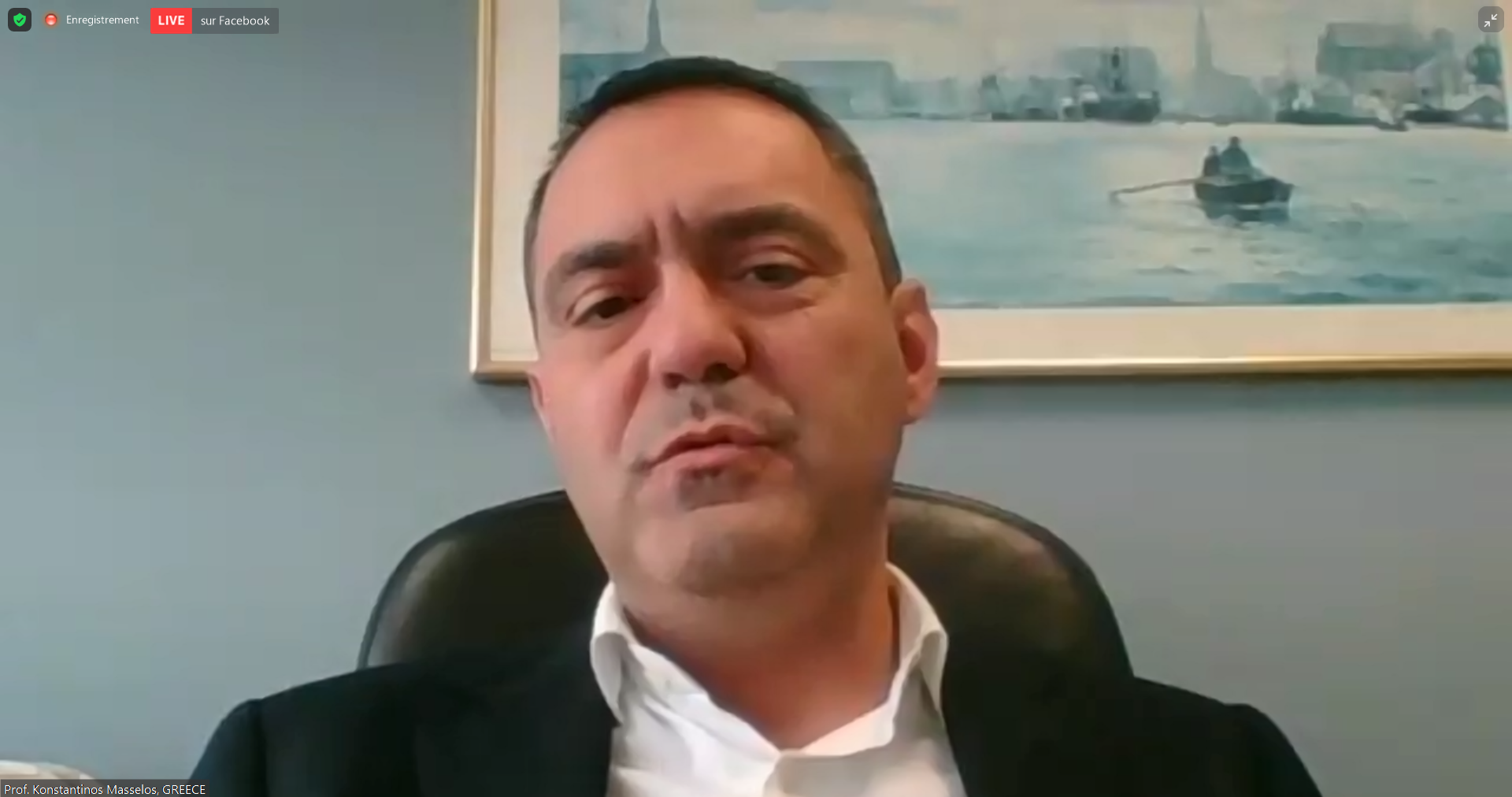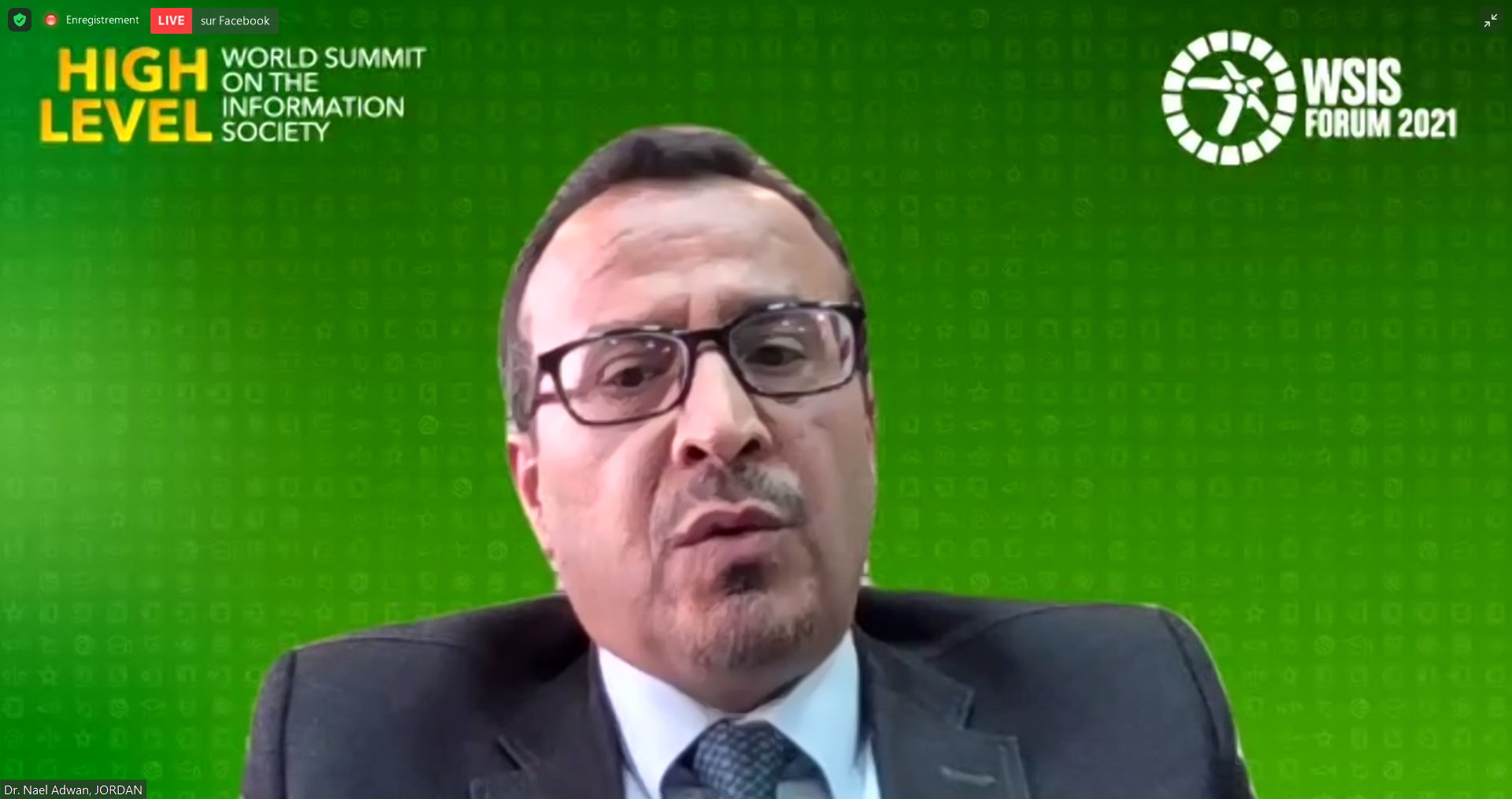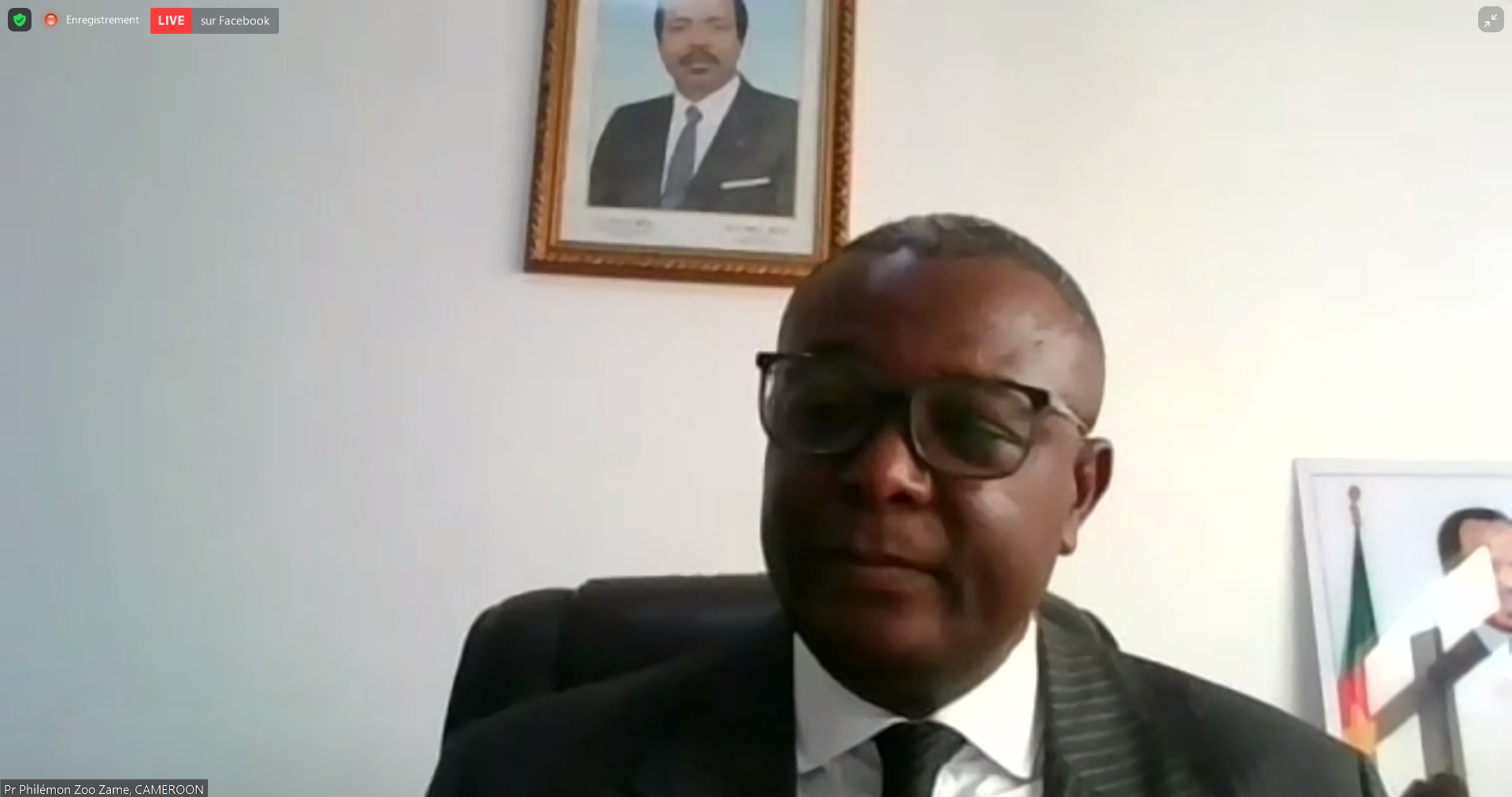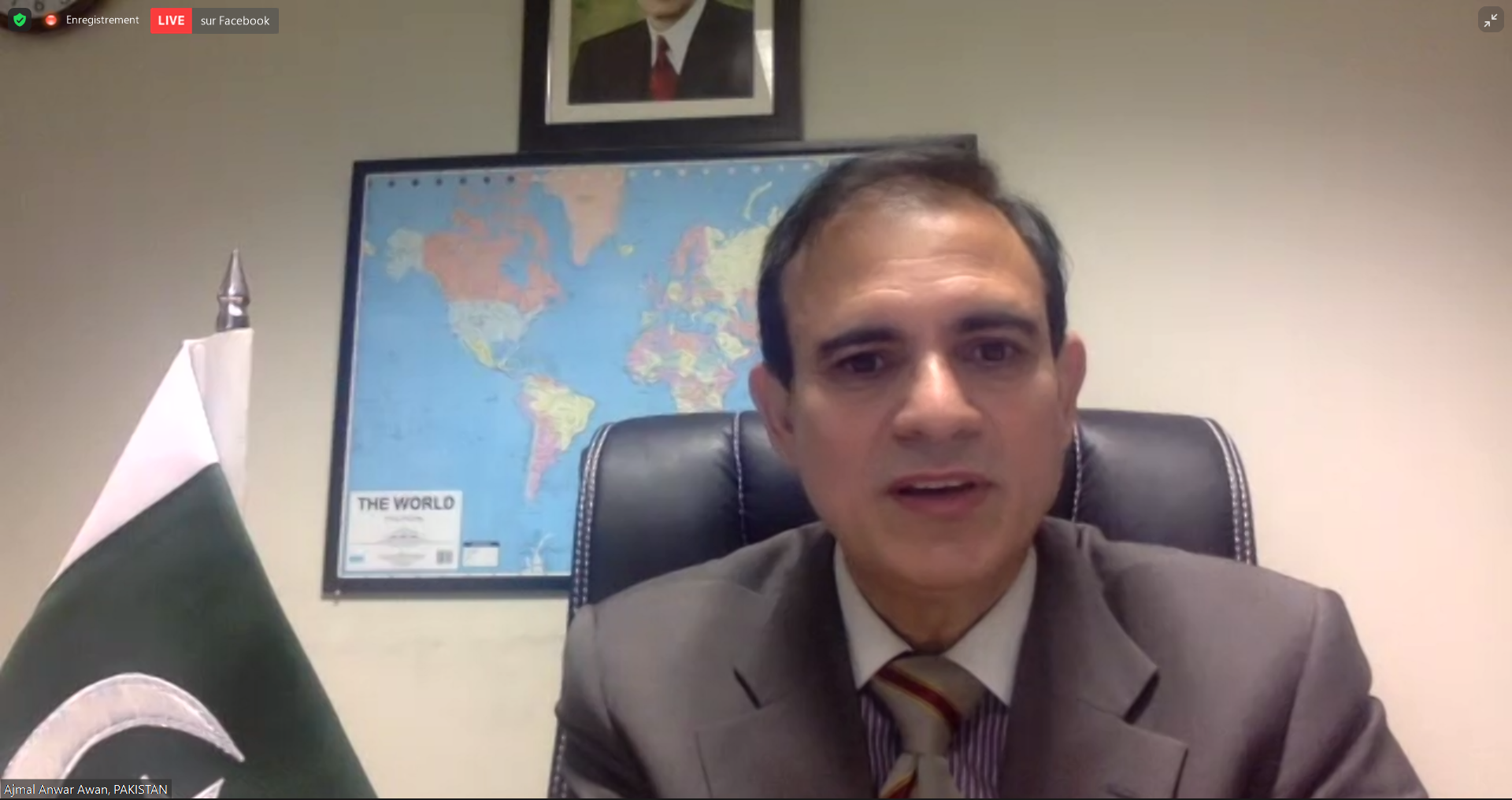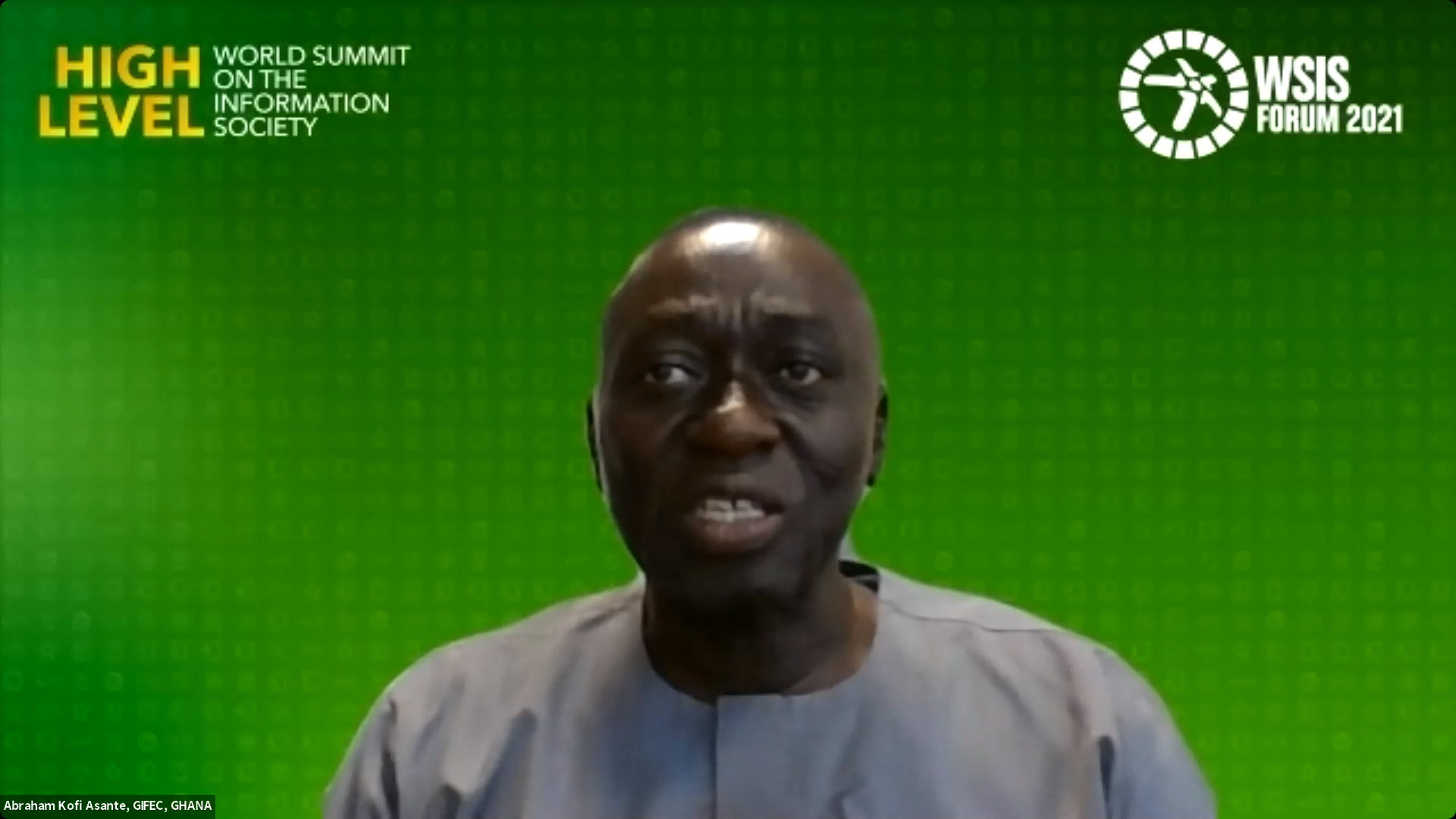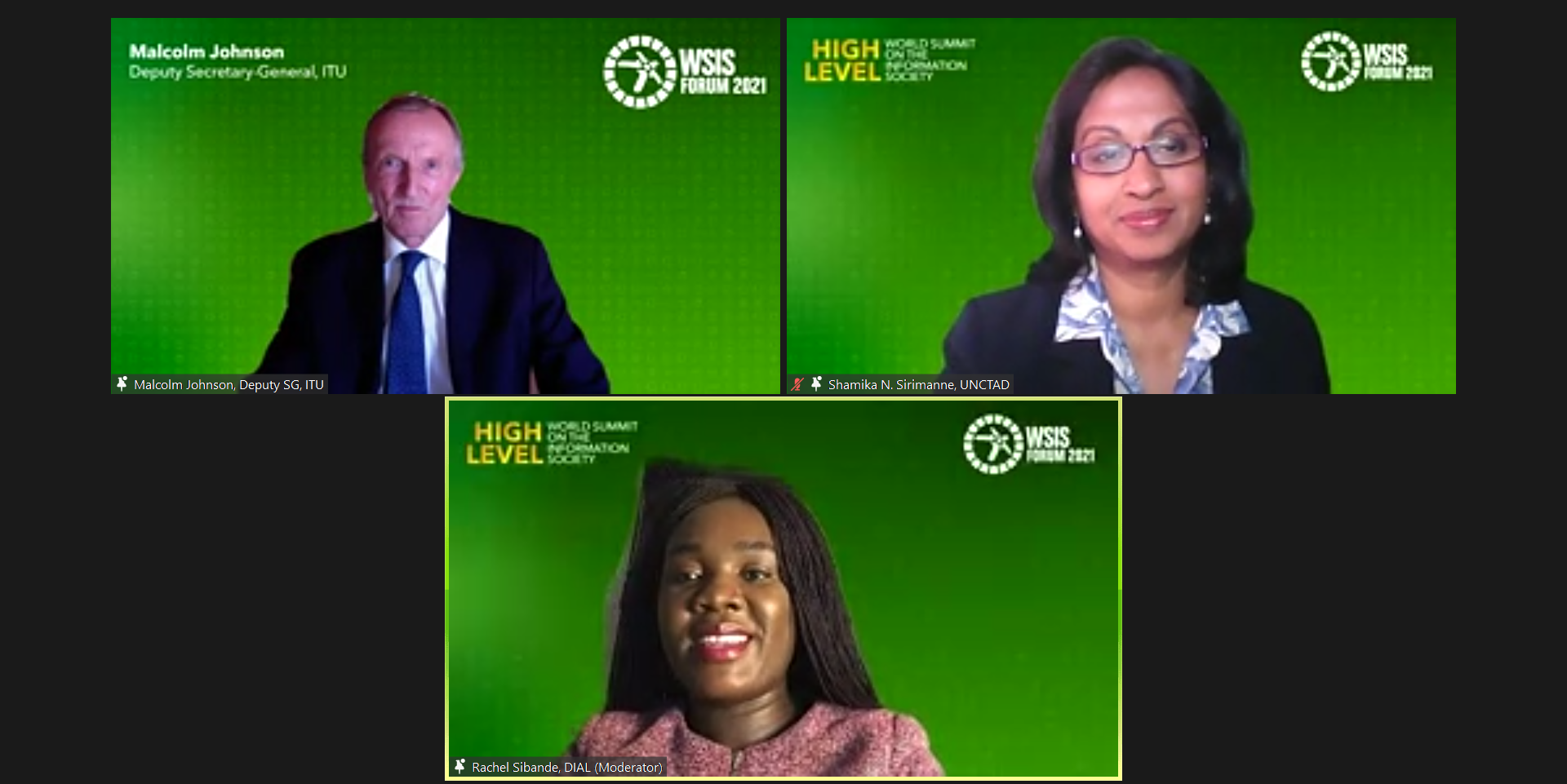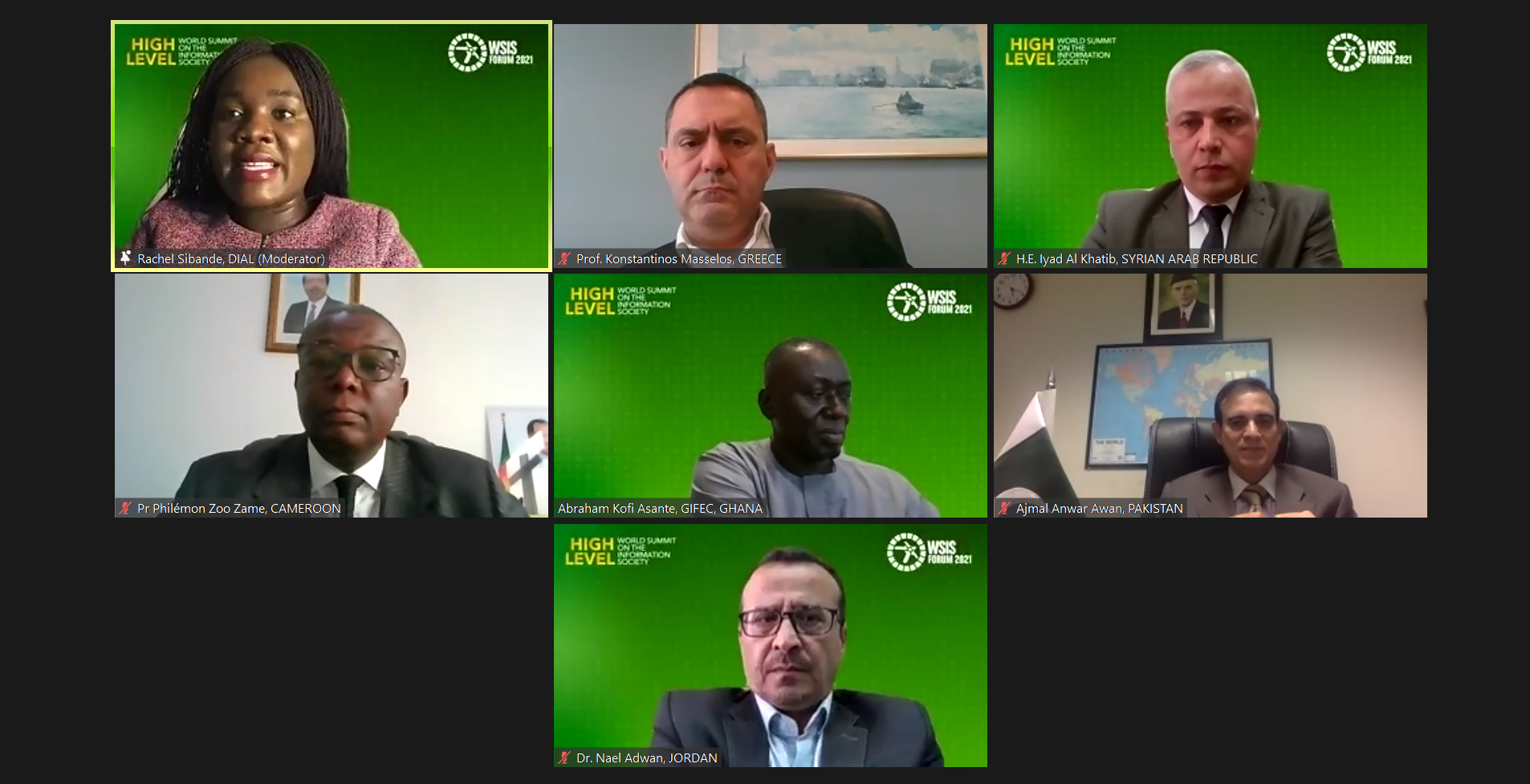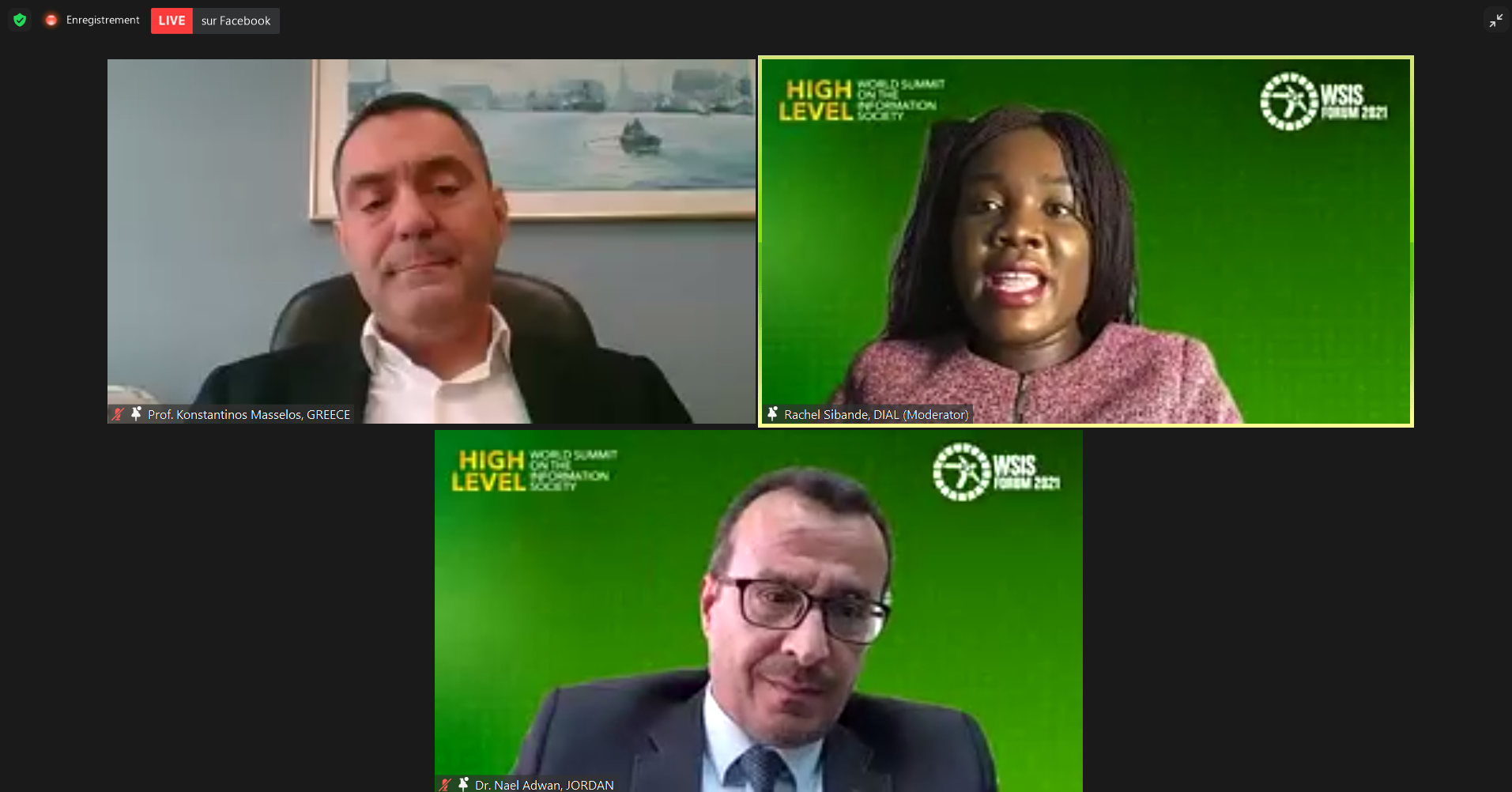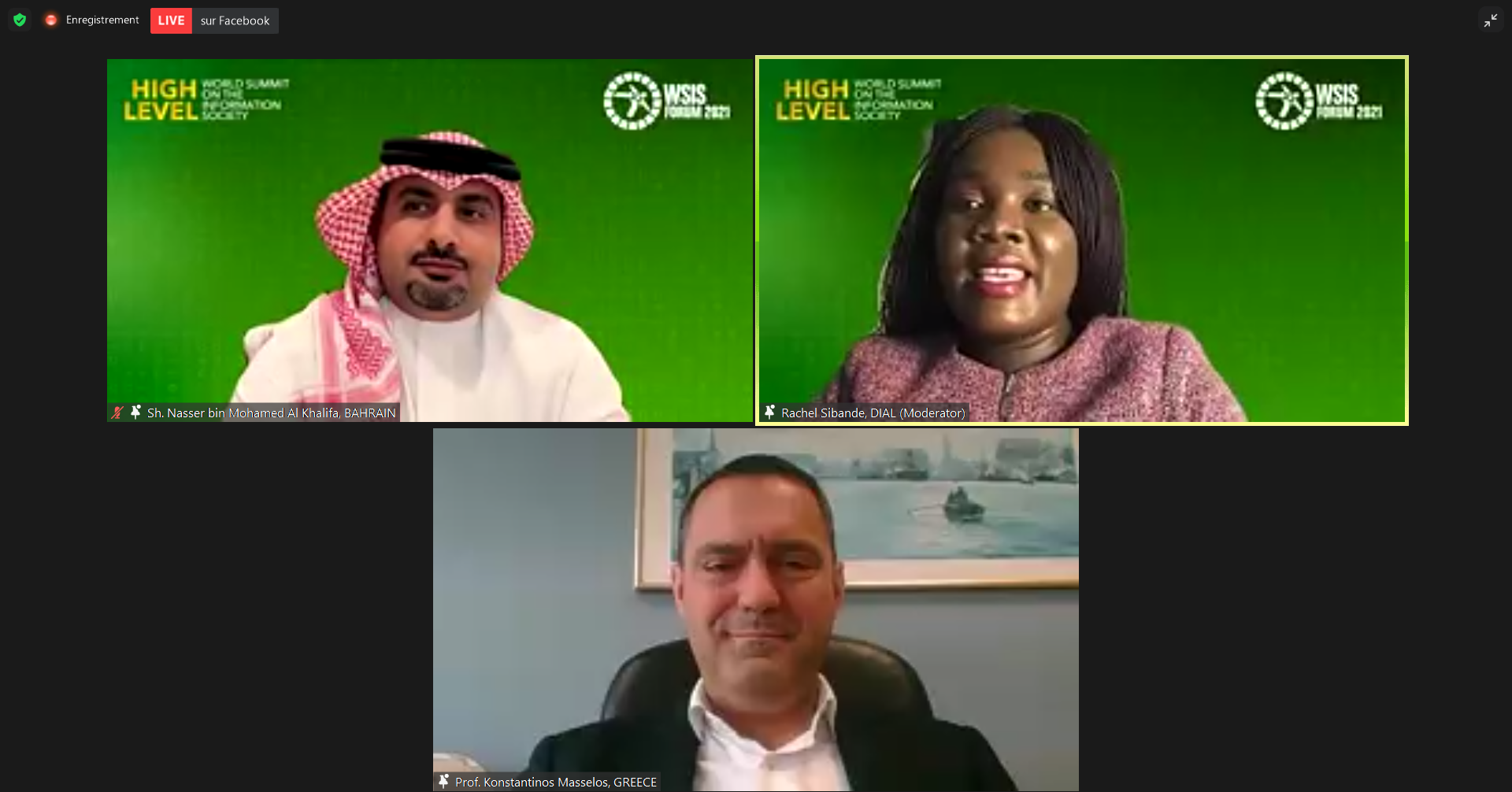High-Level Policy Session 6 : Digital Economy and Trade/ Financing for Development and role of ICT
WSIS
Session 164
Digital Economy and Trade
Technology is supporting and changing how we organize our governing systems, our economies, and our
cultures in unprecedented ways. There are several opportunities for partnerships and collaborations between countries and private sector stakeholders. Otheropportunities exist for research and development, country to country mentoring-which will ensure that experiences are shared, and no country is left behind. Other opportunities include challenging the status quo and finding new ways to find solutions to old problems. This can lead to new business models and a growing ecosystem of new ventures. Opportunities also exist for creative models to build awareness and educate the general public. [1]
[1] WSIS Forum 2019 outcome report
Financing for the Development of ICTs
"We resolve to assist developing countries, LDCs and countries with economies in transition through the mobilization from all sources of financing, the provision of financial and technical assistance and by creating an environment conducive to technology transfer, consistent with the purposes of this Declaration and the Plan of Action". Geneva Declaration of Principles, WSIS 2003.
Geneva Declaration of Principles, WSIS 2003, https://www.itu.int/net/wsis/docs/geneva/official/dop.html
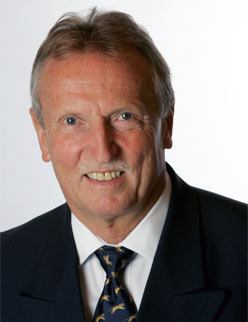

Rachel works to demonstrate sector-wide collaboration between D4D actors in deploying initiatives that enhance data use for evidence-based decision-making. She joined DIAL in September 2017 as Program Director, supporting program partners in selected countries.
Prior to joining DIAL, Rachel established Malawi’s first technology hub; mHub. Through the hub, she championed the development and deployment of innovative technology solutions across fields such as elections monitoring, citizen engagement and agriculture in Malawi, Zambia, Tanzania, Mozambique and Zimbabwe. She has over 11 years of industry experience spanning academia, development and social enterprise domains.
Rachel is a PhD candidate in computer science at Rhodes University in South Africa. She holds a Master of Science in coding theory and cryptography from Mzuzu University and a Bachelor of Science from the University of Malawi.
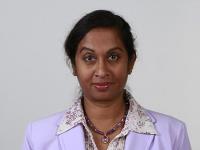
Ms. Shamika N. Sirimanne is the Director of the Division on Technology and Logistics of UNCTAD. She leads UNCTAD's trade logistics programme, including the work on trade facilitation, sustainable and resilient freight transport, port management, and e-commerce and the digital economy. She also supervises UNCTAD’s largest technical cooperation programme, ASYCUDA—the Automated System for Customs Data. She serves as the Head of the Secretariat of the United Nations Commission on Science and Technology for Development which is the focal point of the UN on STI policy dialogue. Ms. Sirimanne has extensive experience in development policy, research and technical cooperation gained from international organizations, national governments, think tanks and universities. She served as Director of the ICT and Disaster Risk Reduction Division of the UN Economic and Social Commission for Asia and the Pacific (ESCAP), where she spearheaded major regional cooperation programmes. Among them are the Asia-Pacific Information Superhighway initiative for seamless broadband connectivity, Regional Drought Mechanism for monitoring and early warning of drought through space applications, and the United Nations Network of Experts for Paperless Trade, UNNExT.
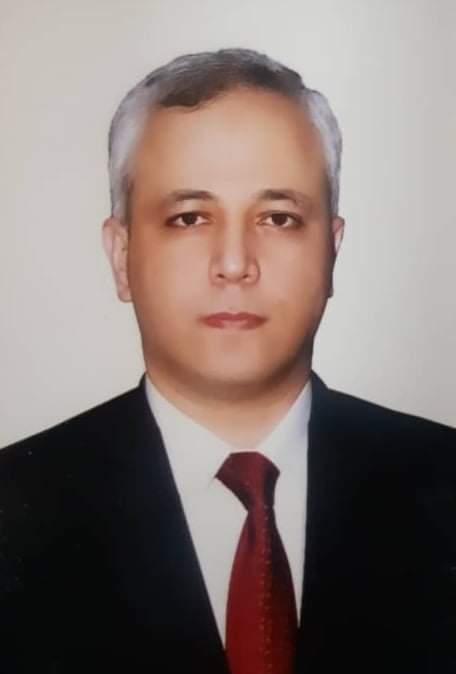
Mr. Iyad Al Khatib is currently holding the position of the Minister of Communication and Technology in Syrian Arab Republic (since 2018).
Before his position as the Minister of Communication and Technology, he held several management positions, like the Chief Executive Officer of Syrian Telecom, and the director of the technical administration.
Mr. Al Khatib has B.Sc. in Electronics and Communication Engineering, from Damascus University and MBA. In E-Business Administration, from the Arab Academy for E-Business and Technology.
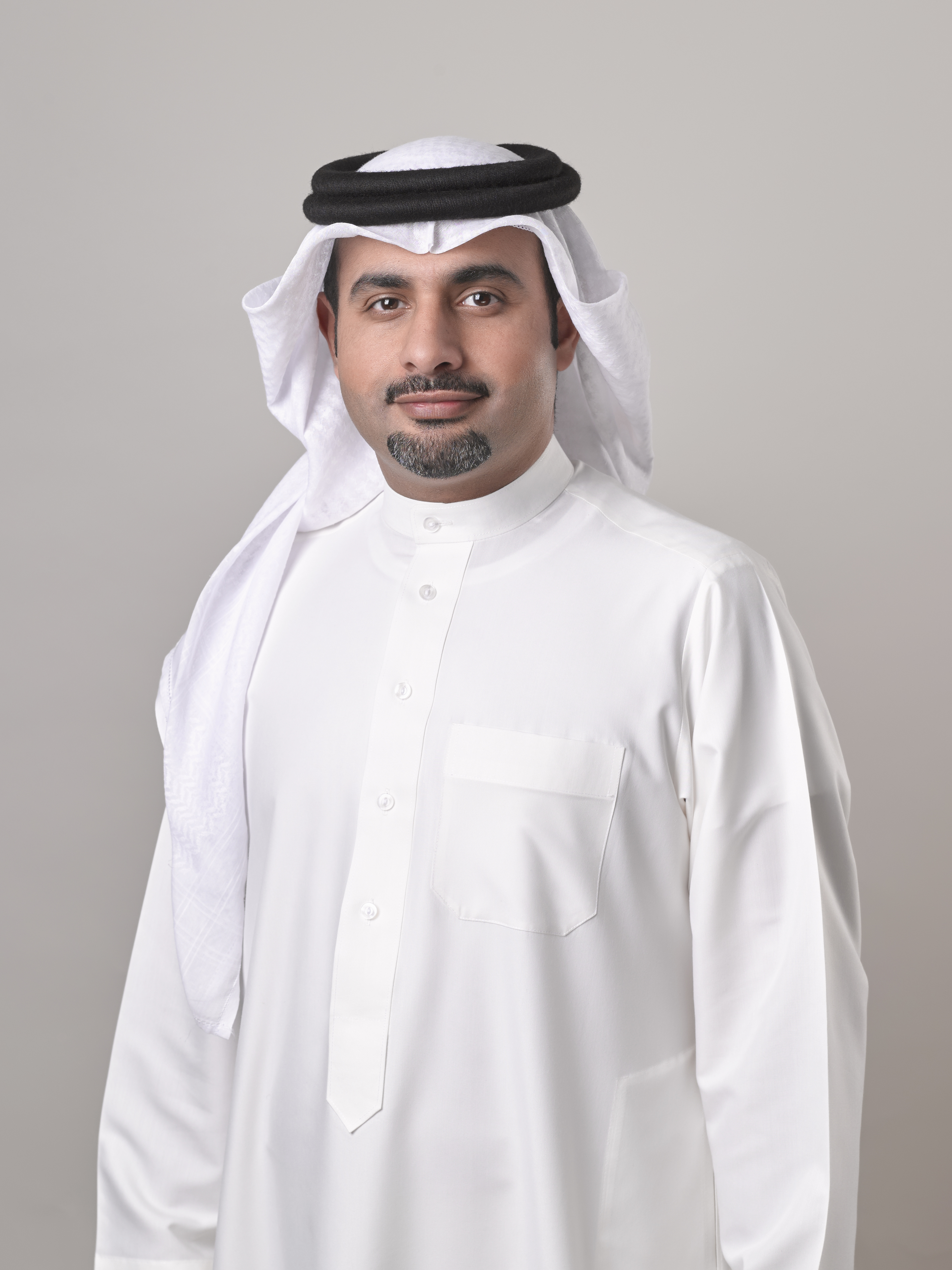
Sh. Nasser Bin Mohamed Al Khalifa is the Acting General Director of the Telecommunications Regulatory Authority (TRA). He re-joined in 2016 in the TRA as Deputy General Director before being appointed on September 2017 to assume his current position; paving the way for a more effective regulatory framework by continuing the evolution of the telecom sector liberalization. Sh. Nasser Bin Mohamed Al Khalifa has been instrumental in managing the day-to-day operations of the TRA including developing consumer protection strategies and overseeing dispute resolutions.His mandate includes developing a more comprehensive and competitive framework matching international best practices, promoting an environment which will encourage investment in the telecoms sector and establishing regulatory policies that will promote competition, innovation and investment in broadband services and facilities.
Sh. Nasser Bin Mohamed Al Khalifa has more than 16 years of experience in the telecoms sector and the field of Information and Communication Technology spanning a number of private and government entities in the Kingdom of Bahrain.
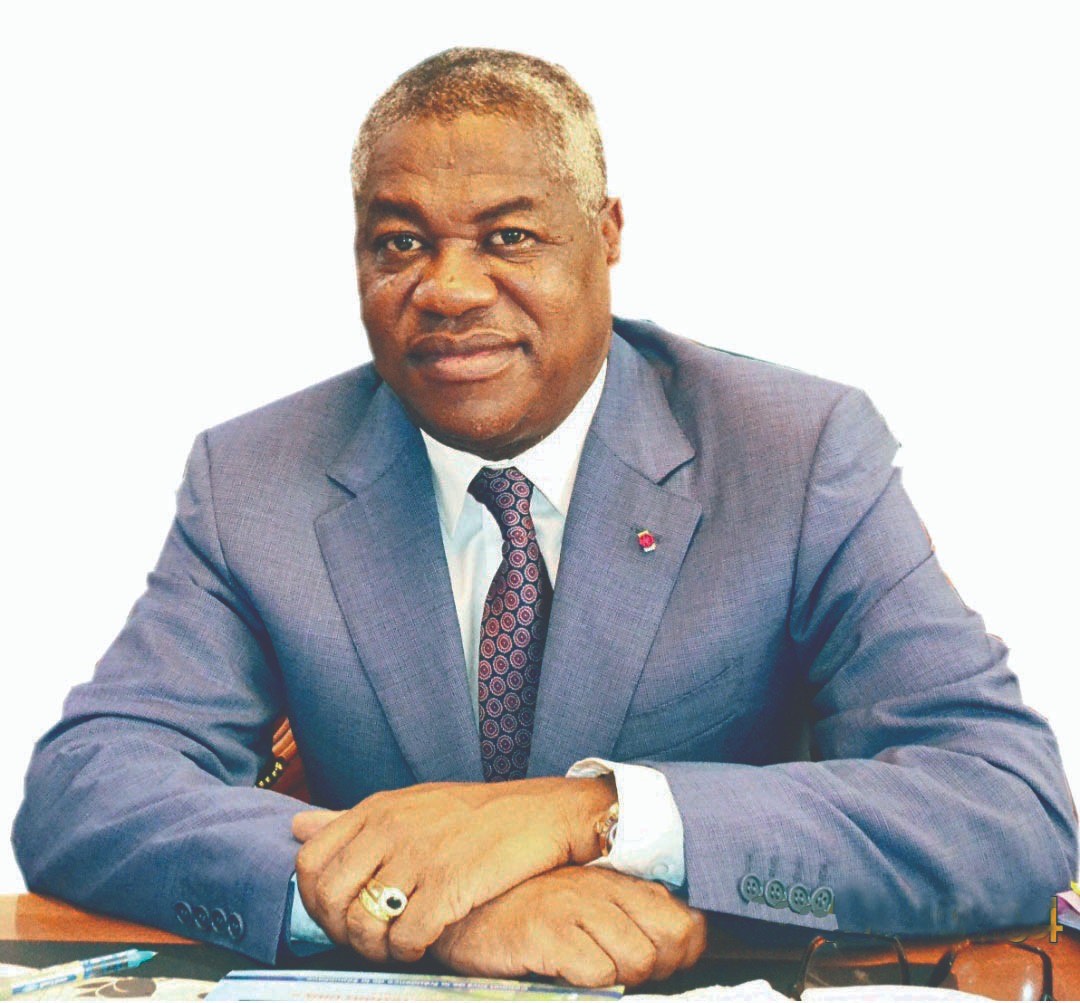
Born in Djoum in 1962, Professor Philémon ZOO ZAME is a mining engineer, Doctor – PHD in Engineering Sciences, Lecturer at the University of Yaoundé 1 (Faculty of Sciences). He has to his credit several professional internships in various fields including the Management of Public Companies, the Economic Role of the State, infrastructure and development. He has participated in several large projects in the restructuring of the transport sector, the mining and petroleum sector, the roads sector, and the water and energy sector.
Since June 8, 2017, he has been the head of the Telecommunications Regulatory Agency. Previously, he was Secretary General of the Ministry of Public Works (2010-2017) and Attaché to the General Secretariat of the Presidency of the Republic from 1999 to 2010. In 2015, Prof ZOO ZAME was elevated to the rank of Grand Officer of the national order of valor but he was also succinctly made Knight, Officer and Commander in the national order of valor.

Professor Konstantinos Masseloshas been appointed as the President of the Hellenic Telecommunications and Post Commission (EETT) in February 2018. He has been elected to serve as Vice-Chair of the Body of European Regulators for Electronic Communications (BEREC) for 2019.
In 2006 he joined University of Peloponnese, where he is currently a Professor in Computing Systems Design in the Department of Informatics and Telecommunications. He served as Rector of the above university the period 2012-2017.
During the period 2005 to 2008, he was Lecturer in digital systems at the Imperial College London. Also from 2010 to 2016, he served as Honorary Lecturer in the Department of Electrical and Electronic Engineering, at the Imperial College London. From 2001 to 2004, he joined Intracom Telecom SA in Greece. He has been involved in several research and development projects and has consulting experience in industry and public organizations. Since 2005 he has been regularly involved as an expert in different European Commission units. He was member of the Scientific Committee of European COoperation in Science and Technology (COST) organization from 2015 to 2017. He has authored more than 120 papers in international journals and conferences.
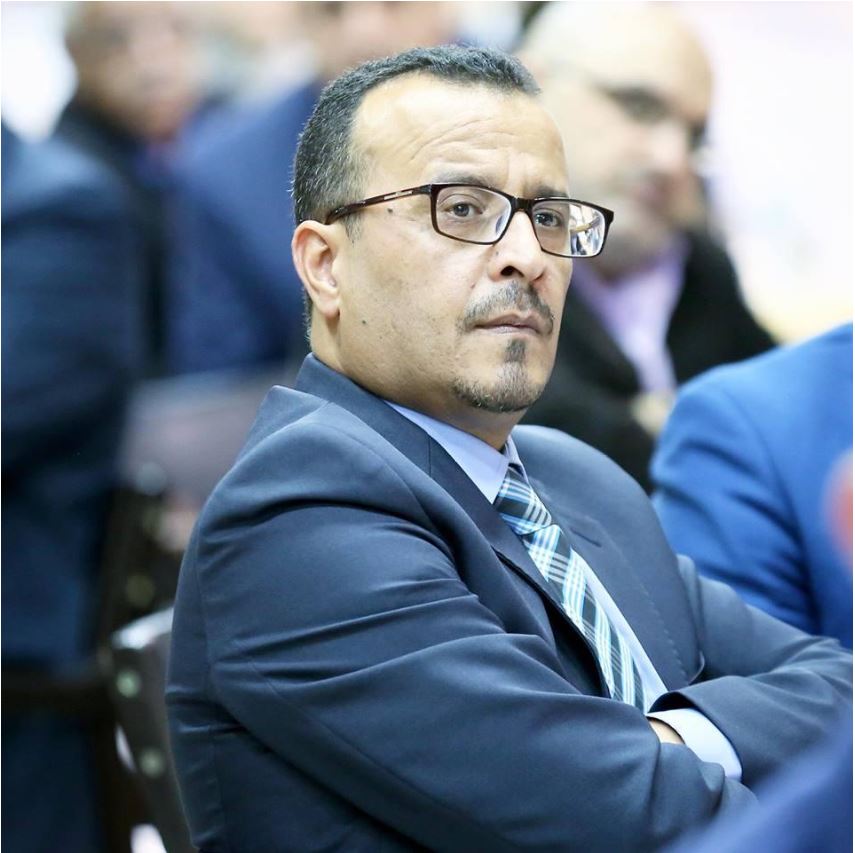
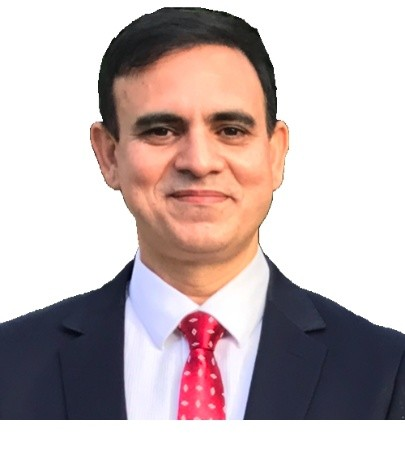
Mr. Awan is an experienced professional currently appointed as Director General of International Coordination in the Ministry of Information Technology and Telecommunication of Pakistan. He has a vast international experience of working at senior management positions in companies dealing with Information and Communication Technologies. During his career, he has worked in Australia, United States, United Kingdom and Middle East.
As Director General in MoITT of Pakistan, he looks after work related to many global organizations including World Bank, UNDP, GSMA, ITU, USAID, SAARC, Asian Development Bank, Commonwealth Telecommunications Organisation.
He holds a Masters degree in Business Administration, a bachelor’s degree in Engineering and Project Management Professional certification from the PMI United States of America.
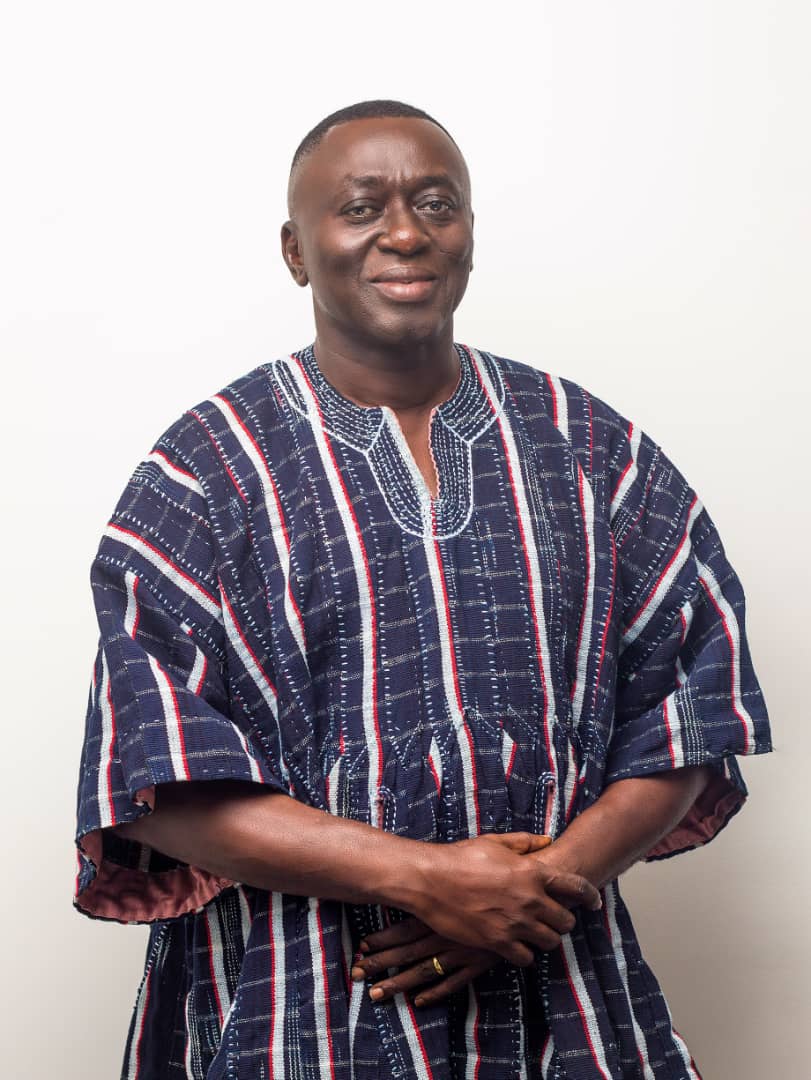
Abraham Kofi Asante is the Board chairman of the Accra Digital Center. He is also the National chairman of the UNESCO Information for All Program (IFAP) mandated to create equitable societies through better access to information. He is the immediate past Administrator and lecturer of the Graduate school of the Ghana Technology University College, Ghana’s leading Telecommunications University responsible for developing transformation leaders in the IT industry in the West African Sub region.
He pioneered the establishment of GIFEC as the Administrator/Chief Executive Officer from 2004 to 2009 to reach its full-fledged status. He worked closely with key telecommunication players to achieve the objective of providing universal access to unserved and underserved communities in Ghana. His key achievements include his involvement in the preparation and chaperoning of the Electronic Communications bill into law, setting up the framework to ensure efficiency and effective usage of GIFEC funds for the provision of Common Telecommunication facilities in rural communities nationwide.
-
 C7. ICT applications: benefits in all aspects of life — E-business
C7. ICT applications: benefits in all aspects of life — E-business
-
 C7. ICT applications: benefits in all aspects of life — E-employment
C7. ICT applications: benefits in all aspects of life — E-employment
-
 Goal 1: End poverty in all its forms everywhere
Goal 1: End poverty in all its forms everywhere
-
 Goal 3: Ensure healthy lives and promote well-being for all
Goal 3: Ensure healthy lives and promote well-being for all
-
 Goal 10: Reduce inequality within and among countries
Goal 10: Reduce inequality within and among countries
-
 Goal 11: Make cities inclusive, safe, resilient and sustainable
Goal 11: Make cities inclusive, safe, resilient and sustainable
-
 Goal 12: Ensure sustainable consumption and production patterns
Goal 12: Ensure sustainable consumption and production patterns
-
 Goal 16: Promote just, peaceful and inclusive societies
Goal 16: Promote just, peaceful and inclusive societies
-
 Goal 17: Revitalize the global partnership for sustainable development
Goal 17: Revitalize the global partnership for sustainable development
